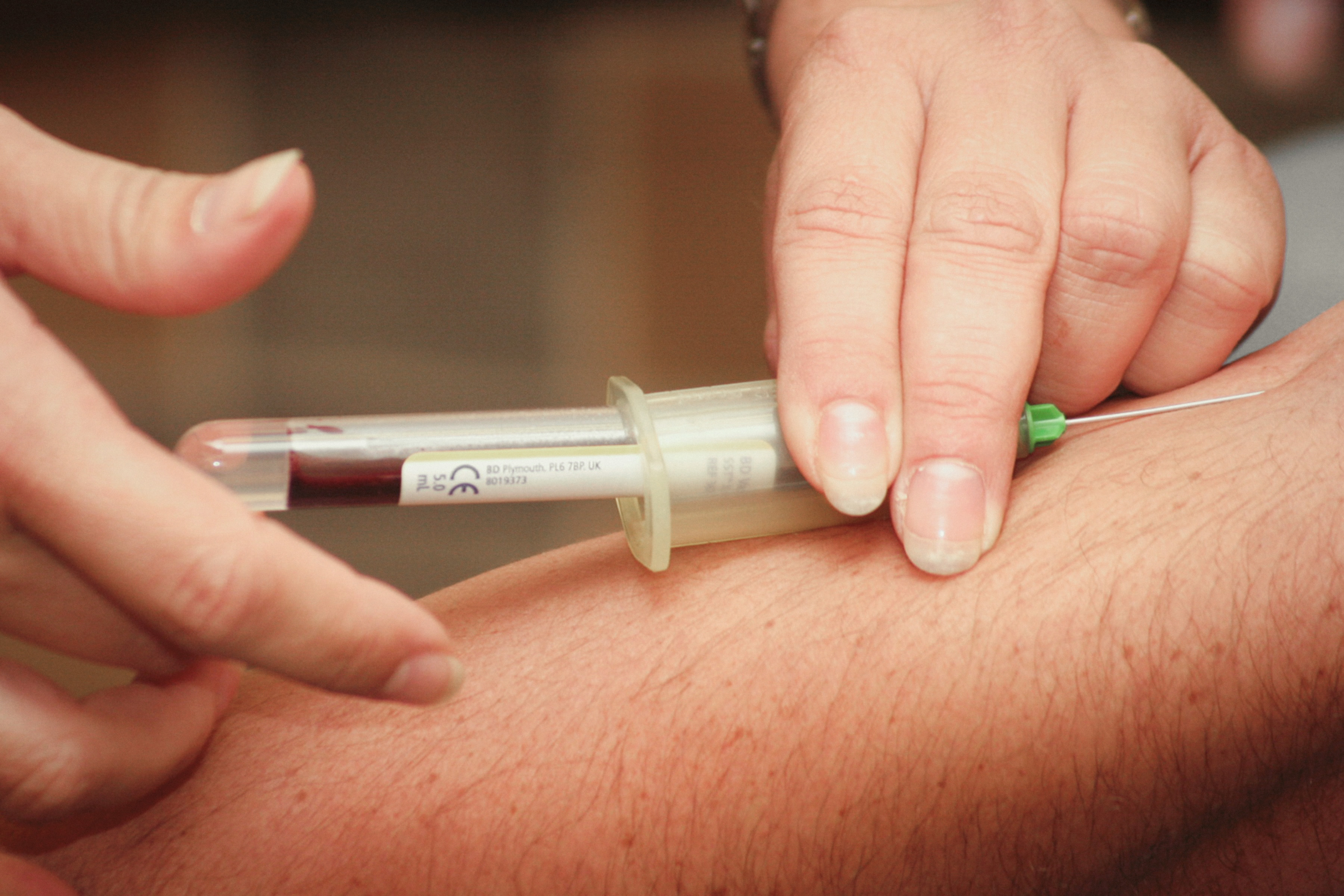
118—
How Thyroid problems appear to run in families
I’m not a big fan of the word ‘expert’.
It makes a person sound like they are single-minded, and that they know everything there is to know about a certain subject. Which, to my mind, doesn’t seem possible, nor does it seem like a very well-rounded approach to anything, particularly when assessing healthy Thyroid function.
(No, I’m not a fan of specialist doctors either. They tend to work alone, rather than as part of a team-effort with specialists in different areas of health.)
I get termed ‘expert’ — quite a bit — when people are referred to me for Hypothyroidism, Thyroid dysfunction, or Iodine therapy. However, having worked in these areas for some years now, I’ll only ever admit to having a good level of expertise here. Especially as I’m not solidly focused in this one area of health. I’m a holistic natural health practitioner. (I look at the whole person, and the various factors that influence their health.)1
What I can say is that at OOMPH, I provide the best care that I can for your Thyroid, based on my current level of education, understanding, and experience.
No more. No less.
That said, in this blog-post I’m going to share something that I’ve learned about Thyroid function over the last few years:
SPECIALISTS ARE NO WISER ABOUT THYROID FUNCTION THAN, SAY, NATUROPATHS.
AND,
UNFORTUNATELY THE BLOOD TESTS FOR THYROID FUNCTION AREN’T VERY ACCURATE
For one, I see screeds of clients at OOMPH who are clearly displaying the signs and symptoms of Hypothyroidism, yet their Thyroid blood-work suggests otherwise (their results are ‘normal’, and sometimes even appear to be perfect.)2
And, because I have clients from all over New Zealand — and I get to see their blood test results — I’ve come to realise that there isn’t a universal Thyroid function reference range to actually fit into!
Not only do I find these issues confounding, but I also find it to be a real concern.
I mean, just what are we really dealing with here, anyway — a sliding Thyroid testing system where the results don’t necessarily match-up with the symptoms?
How are we to compare apples with apples here?
Instead, it’s more like we’re comparing (Adam’s) apples to Kiwis… 😳
Confused?
Join the club.
To illustrate my first point, I have taken this written extract from one of my client’s medical reports, which was sent from her Endocrinologist to her referring GP. The client had gone to this hormone specialist to have her Thyroid function assessed by an expert in this field.
The assessment began —
“I have explained to (client) our poor understanding of Thyroid, and indeed autoimmunity….”
Enough said? 😬
Of course specialists are generally quite happy to point-the-finger at natural health practitioners, and natural health products (with 100% certainty) when it suits them; usually when they have no clue what the cause of the condition is.
I am lucky enough to work with clients from all around the country, and when I receive their blood-work results, the reference ranges are included. (Or, if my client just emails me their test results, I refer to a LabTests record of reference ranges.
While I keep a rough idea of the various blood-work ranges in my head; I don’t keep the actual specifics — because, well, I didn’t think I had to. However, as I progressed with my work, I was getting all-sorts-of-confused when my clients were displaying random, or results contrary to what I had anticipated🤔
Then I realised that we aren’t all on a level playing-field when it comes to testing our Thyroid function.💡
The region in New Zealand where you live will determine what the reference range for your Thyroid function will be — and for the most part, they are all different.
Now, I would love to say that the reason for this discrepancy is because the region you live in impacts the functioning of this gland e.g you live close to the sea, or live in a land-locked area. (which would affect your access to fresh seafood and therefore your access to iodine — more on this below.)
But unfortunately, this isn’t the case, as obviously, we have supermarkets that standardise, and supply (reasonably fresh) food across Aotearoa.
The actual reason for the various Thyroid function result ranges are simply due to which lab-test facility you use — because they all use different methods of testing.
Therefore when I’m assessing my clients blood-work, not only do I have to take into consideration the idiosyncrasies between individuals, but I also have to take into account these ‘sliding scales’.
Note: For my international readers – New Zealand is also called Aotearoa, which has a population of around 5,000,000 people spanning the wee islands we inhabit in the South Pacific ocean.

Wikipedia says:
A reference range is usually defined as the set of values 95 percent of the normal population falls within (that is, a 95% prediction interval). It is determined by collecting data from vast numbers of laboratory tests.
So, riddle me this:
What happens if the majority of the population isn’t normal — and actually all have Thyroid dysfunction?
You can suffer from Thyroid dysfunction due to experiencing ongoing stress (COVID, Lockdowns, Global Warming, Taliban, Trump) and/or from not consuming optimal amounts of certain nutrients in your diet (iodine, selenium).3
Note: According to Dr Brownstein (Holistic GP, and actual iodine ‘expert’), around 96% of the world is deficient in iodine! And, most Kiwis are well aware that NZ soil has inadequate selenium levels.
This really blows how reference ranges are determined for Thyroid function, right-out-of-the-water! Because who the heck could have ‘normal’ Thyroid function — anywhere in the world — given these circumstances? 😬
Technically someone who is ‘normal’ would actually be the few (in the 4—5% range.)
While you would hope that no matter where, and how, you had your blood-work analysed in New Zealand — that if your Thyroid was dysfunctional then it would be picked up (and fall outside the reference ranges). That somehow it would all come out-in-the-wash regardless of what lab-assay was used in the production of the results.
However, if that were the case, then why would LabTests have gone to all the time, money, and effort to recently change their testing method (January 2021) — from Siemens to Roche Assays — when there isn’t much difference between the reference ranges? Doesn’t the simple fact that they felt compelled to align with other pathology services, over the smallest discrepancies of reference ranges, suggest that this whole thing smacks of inconsistencies, and therefore inaccuracies..?
(Please see below for more specific information.)
If there are any Chemical Pathologists reading this, please correct me 🙏🏻
However, in saying that, I did find this research article from:
The Association for Clinical Biochemistry & Laboratory Medicine (accepted January 17 2017).
It says: “Our study demonstrates clearly that there are marked variations in the reference intervals for thyroid hormones between analytical platforms. There is an urgent need for standardization of thyroid hormone assays to permit transferability of results. Until then, guidelines will need to reflect this method-related difference.”
A recent client of mine registered the following Thyroid results with her GP through LabTests.
(Their reference ranges are in brackets.)
TSH:
0.61
(.27—4.20)
T4:
9.3
(12—22)
T3:
2.9
(3.9—6.8)
Based on these results, she was diagnosed with Secondary Hypothyroidism. And, she was immediately prescribed 100mcg of L-Thyroxine to take daily for the rest of her life. (She’s 39 years old.)
Hmm… All of this testing does make you wonder 🤔
Had she had her blood taken in the Bay of Plenty, or in the Waikato, could we safely assume that her results would be ‘out’ by a similar amount? (Just the numbers would have been different?) And therefore she would have been diagnosed with the same medical condition; and prescribed the same medication? 😬
FYI…
Here are my client’s blood-test results, compared to the Thyroid reference ranges for BOP, and Waikato –
TSH
0.61
(.30—5.0)
T4
9.3
(7.0—16.0)
In case you’re wondering if the right ‘call’ was made based on her Auckland/LabTests blood work… The client actually felt worse for taking the medication e.g. sweaty, hot, it affected her breathing, and exacerbated her stress. And now — in subsequent blood-work — her TSH is barely registering.
This is why I’m now working with her to correct the real problem: an underlying, significant, chronic stress issue.
LabTests (which is the main pathology service that my Auckland clients use) have changed the way they process, and analyse blood. They have moved from Siemens assays to Roche assays.
One of the main reasons they have done this is so that their blood-work and the blood-work generated at Middlemore hospital, and by LabPlus, are now aligned.
(Can you believe it wasn’t aligned in the first bloody place?!)
Note: LabPlus is the pathology service for Auckland City Hospital, National Women’s Hospital, Starship Childrens Hospital, and the Greenlane Clinical Centre.
For those that want to reassess their Thyroid medical history, here are the ranges prior to 2021/since Jan 2021
Pituitary Gland:
TSH
(.30—4.0)/(.27—4.20)
Thyroid Gland:
T4
(11.0—22.0)/12.0—22.0)
T3
(3.0—6.5)/(3.90—6.8)
Pituitary Gland:
TSH
(.30—5.0)
Thyroid Gland:
T4
(7.0—16.0)
T3
(3.6—6.5)
Pituitary Gland:
TSH
(.27—4.2)
Thyroid Gland:
T4
(12.0—22.0)
T3
(4.0—6.8)
Note: They would appear to use Roche Assays as their ranges are the same as the new LabTests ranges.
Pituitary Gland:
TSH
(.40—4.0)
Thyroid Gland:
T4
(10.0—24.0)
T3
(2.5—6.0)
Note: Goodness knows what method they use…
As you can see from the ranges above –
TSH ranges are relatively similar.
(But on a whole, the ranges can be a full point different)
T4 can be out by many points!
Note: In my opinion the TSH actually needs to be scaled down. It should be no higher than ‘2’. Anything above this score, and up to ‘9’, should be considered sub-clinical Hypothyroidism, and be treated by a Naturopath.
T3 can be out by a full point or more.
Note: Please be aware that, in the first instance, most GPs will only check TSH… and they might check T4 at ‘a push’.

For those clients who are being regularly blood tested via LabTests
Please be aware that your Thyroid function results will look slightly out-of-range compared to your previous results. Bear this in mind if your doctor wants to alter your medication based on these, or encourages you to take medication based on these.
For those people in general
Your blood-work should ALWAYS be interpreted alongside your symptoms. And, it might pay to get a second opinion if things aren’t sitting-right-with-you. (Either your diagnosis, or recommended treatment.)
FYI: I have numerous clients who come to me, that are already medicated for their Thyroid. And, I generally find that that they are still displaying signs of, and experiencing symptoms of Hypothyroidism.2😬
If you have a strong belief that something just doesn’t add up about your Thyroid function results, then your feeling is very likely to be accurate.
Lisa Fitzgibbon is a degree qualified (2006), experienced and registered Naturopath & Medical Herbalist. She runs her own private practice – OOMPH in Grey Lynn, Auckland, New Zealand.
Lisa has been involved in the Natural Health industry for 16 years. She draws on her professional training and experience, as well as her own personal experience to bring you realistic, holistic health advice.
Book onlineI’m actually in my fifteenth year of practicing Naturopathy. I graduated in 2007, with a Bachelor of Health Science (Complementary Medicine) and have been practicing full-time ever since. (And, I also worked in health stores for the three years that I was studying.)
https://www.ncbi.nlm.nih.gov/pmc/articles/PMC6143469
Thyroid blood testing can be impacted by the time of day the blood sample is taken. It can also be influenced by stress, depression, obesity, insulin resistance, CFS, the menstrual cycle, mobile phone usage, and more!
https://journals.sagepub.com/doi/full/10.1177/0748730414557634
https://restorativemedicine.org/wp-content/uploads/2014/04/Peripheral-Thyroid-Hormone-Conversion.pdf
Any kind of stress inhibits the effective functioning of the Thyroid gland. It primarily inhibits the conversion of T4 to T3, and promotes the production of reverse T3 – the metabolically inactive form of T3. This results in tissue Hypothyroidism.
https://www.researchgate.net/publication/272209525_Peripheral_Thyroid_Hormone_Conversion_and_Its_Impact_on_TSH_and_Metabolic_Activity
Subscribe to LISA SAID SO
Subscribe to the LSS newsletter to get updates on a very irregular basis.
Sorry for the interruption!
You seem to be interested in what Lisa has to say. To be updated when new articles are published, or we have news to share, enter your email below. Thanks!